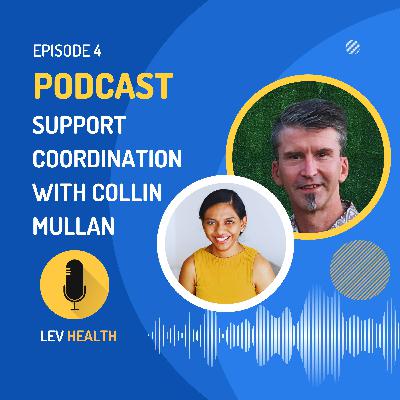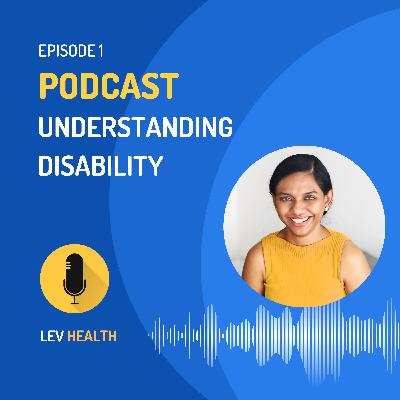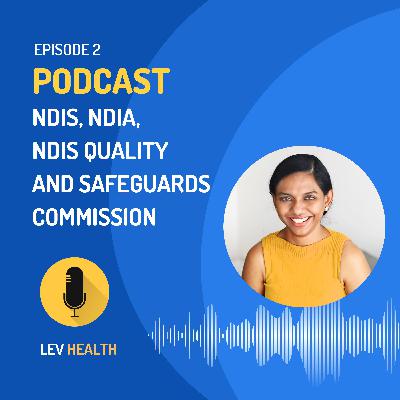Episode 4 - Support coordination with Collin Mullan
Description
This conversation with Collin has been so informative. It was a long conversation packed with wisdom, so I will sum up the conversation and highlight the important points in the show notes.
Support coordination is one of the categories of funding that people will often see in their NDIS plan. It can be broken down into probably four key roles within support coordination. So there's level one, level two and level three support coordination. And there's also psychosocial recovery coaching, which is very similar.
Level 1
It's usually under 24 hours a year. So very minimal work needs to be done. It's just a contact point.
Level 2
The second level is called coordination of support. And that's what I do and what the vast majority of support coordinators do in NDIS. And that's a more detailed approach to helping people implement their plans. And it's got a big focus on capacity building. So allowing some assistance to, for participants to learn how to manage their own plans and engage their services.
Level 3
The third level is called specialist support coordination. That's for more complex needs. A specialist support coordinator is quite often an allied health professional or a social worker. So they've got some extra skills to deal with complex issues that might be people who are involved in the justice system and have drug and alcohol issues on top of their disability or maybe facing homelessness or have a very complex care team that needs to be coordinated.
Level 4
And then the fourth one that I mentioned was psychosocial recovery coaching. So that's a distinct focus on mental health. It's a lot more flexible with the support.
Support coordination is really a Monday-to-Friday, nine-to-five job. Psychosocial recovery is a lot more flexible and can be provided outside of those hours, across weekends. It can be used in a crisis management situation.
The vast majority of participants that are going to have support coordination is going to be at that level two coordination of support. And just to put people in the picture, about 40% of participants will have support, coordination, and funding. So it's not open to everybody, but you can ask for it. So if, if a participant feels that they need some help with their plan, particularly if it's their first plan, they can ask for support coordination to be put into that funding.
If people are struggling to implement their plan and they're not getting support from the agency or the LAC, they can always go back and ask for support coordination. They can put in a change of circumstances to say, I'm struggling with this, I can't get my services engaged, I need some help. Please give me a support coordinator.
An analogy
Entering NDIS territory is like going on a holiday to a foreign country where you don't understand the language. They have different customs, different laws, and different cultures. It's just new territory. The support coordinator is the tour guide. So they're going to try and get you the best experience possible. They're going to help you navigate unfamiliar territory. They are going to translate for you. They're going to help you avoid the pitfalls. And if you're in a foreign country and you want to go and visit a place, they'll go, no, no, no, let's not go at nine o'clock in the morning because everyone else will be there. Let's go at three o'clock in the afternoon, and you'll get a better view and experience. That's the role of the support coordinator to help guide you to get the best experience.
And it's also about minimizing risk as well. So ensuring that you get safe, quality services in place that you're protected from people who might defraud you or not provide the best services possible. So to go back to what you were saying, there are a few things that support coordinators do, and NDIS has a big list of what the role is, a little bit of a list of what the role isn't. So the primary function is to help facilitate the plan implementation. So again, it's that navigating, the advising, it's about unpacking the budget, so understanding what all the categories of funding are and how they can be used appropriately and assisting the participant in making that last for the life of the plant. The other aspects that we look at with support coordination is researching different options, providing a range of solutions and a range of services and providers so that the participant can choose the one that they feel most comfortable with and also, you know, mediating any issues that might crop up as well.
What should participants or their loved ones look for when they're choosing a support coordinator?
Summer Foundation has a great booklet on choosing a support coordinator. There are two things to look at in choosing a support coordinator. Number 1 is an essential criterion number 2 is a personal preference.
Essential criteria -
- I would say get a local coordinator so someone knows your area and the available services. Remote work might work for some people, but it's going to be very difficult for the operator to understand the local market in another area and know who the good service providers are and the ones to stay away from.
- Experience brings knowledge, and you refer to the NDIS is a maze if you don't know your way through the maze, the coordinator's going to get lost with the participant.
- Asking questions about a person's work history and background experience will help and bring some comfort to that question.
- The other thing is the capacity and the caseload that the coordinator has. So that's going to vary depending on whether that coordinator is part-time or full-time. If they work for themselves or in a bigger organization, that capacity is going to change. But generally, if the support coordinator's got a caseload of 40 to 50 participants that they're assisting, that's really, really busy, and they may be spread too thin, they may not be reachable all the time, they may not be able to attend to the crises if they come up. Whereas someone working full-time, if they only have a caseload of 25 or 30, they're going to have much more flexibility to respond in a better way.
- Asking the question about capacity is really important. Harking to whether they're a sole trader or work for a big organisation, what happens when that person goes on leave or they get sick? What's the backup plan?
Personal preference
- I think it's really important to have that rapport between a participant and any service provider, particularly the support coordinator.
- There's one point that probably sits between the essential and the personal preferences. I would call it essential. Other people would say it's a preference.
That is how independent is the support coordinator. What potential conflict of interest might they have? So if they work for a big organisation that provides a whole range of NDIS services, what's their conflict of interest policy? Are they going to recommend that the participant use that organization's services? An independent support coordinator, particularly someone not delivering other services, will not have that same conflict of interest. So some people love the one-stop shop.So a participant might find that's the easy way to go, but for others, independence, unbiased, objective advice is really important
- . Another factor that people will need to consider is whether the provider is registered or unregistered. So depending on how the plan funding works, if the NDIA manages the funding for support coordination, then the provider must be registered. If the funding is self-managed or plan-managed, then the participant has a choice of any provider to deliver that support.
- Couple of more things that are really good for personal preferences, your own values and the work style of the provider. So things like communication, are their processes going to work in with the needs of the participant?For example, I have a participant who prefers to get all documents printed, and in the mail and in this day and age where we're all used to email and high technology, some providers may not work with the old print and mail-out and get it returned a week later in the mail.
<ul









